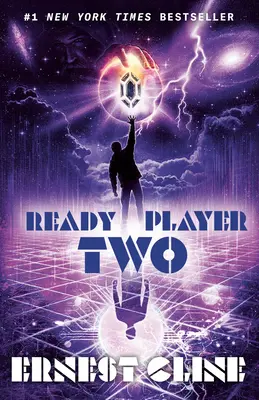Original robot image by Alex Knight - Original background image by Polina Kovaleva
The age of AI has been a long time coming, but between platforms like Dal-E and ChatGPT, it looks like it’s finally here. ChaptGPT’s arrival has sparked debate from chat rooms to boardrooms to classrooms. Schools want to ban it, journalists are having 2-hour conversations with it, writers are trying to figure out how it will impact their jobs, and big-name tech companies are pouring billions of dollars into it. In truth, only time will tell what this new technology's long-term impact and consequences will be. However, from a creative writing standpoint, the rise of ChatGPT has made defining, refining, and evolving our authorial voice indispensable.
If you’re new to the AI party, “GPT” (Generative Pre-trained Transformer) is a neural network machine learning model that’s trained to generate any type of text using data on the internet (ChatGPT uses the 3rd generation of GPT, which involves a “deep learning” component). Now, with ChatGPT developers have created an AI that’s capable of dialogue and conversational interactions. For example, you could ask it, “What are common themes in science fiction novels?” and ChatGPT will “think” (aka scan the internet/digital sources) and then spit out an answer that outlines a list of common sci-fi themes.
ChatGPT is also capable of generating large amounts of text, including ad copy, emails, blog posts, essays, short stories, and even novels using strategic questions or prompts. Currently, its ability to create largely depends on a human being asking the right questions and guiding it accordingly. So while it can be creative and sound like it knows what it’s talking about (even when it’s wrong), the technology is far from perfect.
There’s also no denying that there are several areas around ChatGPT that need to be addressed. Aside from developing these tools ethically, another area that comes to mind is attribution. Given that ChatGPT generates content by extrapolating information and mimicking the style and voice of others, it should be made crystal clear where and whom it’s pulling from. Some might argue that creatives riff off each other all the time. But, let’s put this argument to bed once and for all, shall we? What was just described is called inspiration. Taking people’s work and passing it off as your own is plagiarism and it’s inexcusable—period. Establishing standards now will only help us avoid headaches down the road as this technology evolves and more competitors enter the space.
So, on the one hand, this tool has the potential to help those who struggle with writing finally get their creative ideas down on paper in a form they can study, learn from, edit, or experiment with. On the other hand, the idea of competing with an all-knowing J.A.R.V.I.S.-level wizard is daunting, to say the least. But while ChatGPT may grow up to be a mighty digital wizard, it will never be an all-powerful genie. Humans are at the heart of creative expression and this technology can only pull from what has already been created. Remember, it’s limited to existing data and mimicking the voice of other authors and their perspectives. So rather than crawl under a rock, now is the time for writers to double down on elements of our craft, such as defining and refining our authorial voice.
Voice is often elusive, yet it is undoubtedly one of the most critical components of a writer’s craft. Combined with style and form it has the power to set a book apart from all others on the shelf—potentially for years to come. However, the road to finding one’s voice is different for everyone. Most writers would agree that they had to read and write a lot to find it, read and write some more to crystalize it, and then read and write even more to refine it. But just because finding your voice may be challenging doesn’t mean it should be glazed over, neglected, or rushed.
In Several Short Sentences about Writing, Verlyn Klinkenborg defines “voice” as the thing that “implies a notion of dramatic presence, a sense of the writer’s gesture.” In other words, a good work makes it clear that the author, another human being, is present. Furthermore, Haruki Murakami explains in his recently translated essay collection Novelist as a Vocation, “...rich, spontaneous joy lies at the root of all creative expression. What is originality, after all, but the shape that results from the natural impulse to communicate to others that feeling of freedom, that unconstrained joy?” Human beings write novels, essays, and LitReactor articles to communicate with other human beings, and to do that we need to have a voice that is true to us. ChatGPT might help us find our authorial voice, but ultimately only we can define and refine it.
For example, in all of his works, Ernest Cline focuses on the importance of living in the real world in a rapidly expanding digital age. He writes nerdy characters who have heart and who have their finger on the pulse of video games, movies, and other topics in pop culture. Cline has certainly found his niche and the subjects he likes to talk about. But more importantly, he has his authorial voice nailed down, and it’s enabled him to enter and drive conversations about living in an increasingly digital world.
If you didn’t know anything about Cline’s work, if his name wasn’t on any of the books he’s written, you could pick up Ready Player One, Ready Player Two, or Armada, read the first chapter, and instantly know that the same person wrote all three of them. This cohesion has less to do with the subject matter and more to do with Cline’s voice and presence. Ready Player One became a bestseller because readers connected not just because of the story, but because of Cline’s distinct authorial voice.
Ready Player Two by Ernest Cline takes a close look at AI technology. [Image Source]
The same could be said for writers like Benjamin Percy, Mike Chen, Ryan Holiday, or George R.R. Martin. Honestly, I could rattle off a whole paragraph’s worth of names. But ultimately, the point is that these authors, while they’ve done a good job of camouflaging themselves, are undoubtedly present in their works. As readers, we can feel this and when we do, we buckle up and get ready to enjoy the ride.
So no matter how sophisticated ChatGPT becomes (as long as it’s developed ethically) all it will ever be is a tool. As the American Psychology Association puts it, “An adjunct, not an alternative.” Will ChatGPT prove to be a powerful tool? Probably. But a tool all the same that relies on rules, data, and formulas to generate content. Creativity is about breaking rules, experimenting, and pushing boundaries in order to share our perspectives and push critical conversations forward. No one is better at understanding when to break rules and conventions than those who put them there in the first place: human beings. We can either demonize and fear ChatGPT and other tools like it, or we can stand tall, hone our craft, and continuously challenge ourselves to define, refine, and evolve our authorial voices.
Get Several Short Sentences About Writing from Bookshop or Amazon
Get Novelist As A Vocation at Bookshop or Amazon
Get Ready Player One at Bookshop or Amazon

About the author
Amanda is a writer and blogger who's worked for several publishing outlets, including Stillhouse Press, So to Speak Literary Journal, Shreve Williams Public Relations, and St. Martin's Press. She received her MFA in Fiction at George Mason University. Currently, she's working as a marketing and editorial assistant at an up-and-coming digital fabrication company in New York. You can find more of her work in Rune Bear Magazine, as well as on her blog Live by the Shelf.









